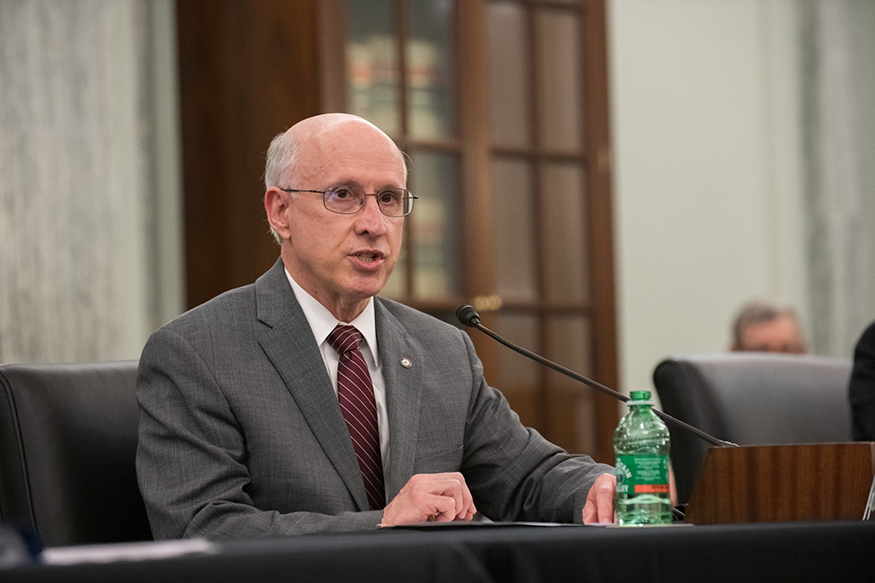MSU Provost Shaw discusses importance of R&D investments in U.S. Senate Commerce Committee testimony
Contact: James Carskadon

STARKVILLE, Miss.—During a Wednesday [April 14] U.S. Senate committee hearing, Mississippi State University Provost and Executive Vice President David Shaw encouraged lawmakers to make geographically diverse investments in research and development to help the country strengthen its global leadership in science and technology.
Shaw testified as part of the Senate Committee on Commerce, Science and Transportation’s hearing on the Endless Frontiers Act, a piece of proposed legislation aimed at increasing U.S. technological innovation. During his testimony, Shaw highlighted the importance of the National Science Foundation’s Established Program to Stimulate Competitive Research, or EPSCoR, which strengthens STEM capacities and capabilities for 28 U.S. states and territories. He encouraged lawmakers to take additional steps to ensure a geographically broad investment in the country’s research capabilities.
“The disparity of existing NSF funding between states, the haves and have-nots, is striking, and my concern is that without specific and proactive action mandated in legislation this disparity will only worsen,” Shaw said in his oral testimony. “Congress has the opportunity to ensure that zip code does not determine whether talented students can develop the workforce of the future, the new ideas for entrepreneurial businesses, and the economic development so desperately needed in some of our more depressed economies.”
Prior to being named MSU’s provost in 2019, Shaw served as the university’s vice president for research and economic development for nine years. MSU now conducts nearly half of all funded university research in the State of Mississippi, with research expenditures exceeding $264 million. The university holds Carnegie R1—very high research activity—status and is ranked 92nd overall in research and development by the National Science Foundation and 62nd among public universities, including 30 disciplines or subdisciplines that are ranked in the top 100 nationally.
In his testimony, Shaw discussed the economic impact he has seen first-hand at MSU from increased research capabilities at the land-grant university and the many state, federal and industry partnerships that have created new opportunities in the state.
“Past federal investments in research have made a tremendous difference in my home state of Mississippi,” Shaw said. “Mississippi State University won an NSF Engineering Research Center in 1990, focused on computational field simulation. As a part of the incentive to attract Nissan, we leveraged the ERC to create a new Center for Advanced Vehicular Systems at MSU. The Department of Commerce has now estimated the impact of just this one center to be nearly $6 billion over a 12-year period in jobs saved or created. Without the NSF investment, this would not have been possible.”
For more on Wednesday’s Senate Committee on Commerce, Science and Transportation hearing, visit https://www.commerce.senate.gov/2021/4/committee-announces-full-hearing-on-april-14.
To read Shaw’s written testimony submitted for the hearing, visit https://www.commerce.senate.gov/services/files/7BFAFE39-6991-4F68-967E-EA93F5CF3DE0.
MSU is Mississippi’s leading university, available online at www.msstate.edu.